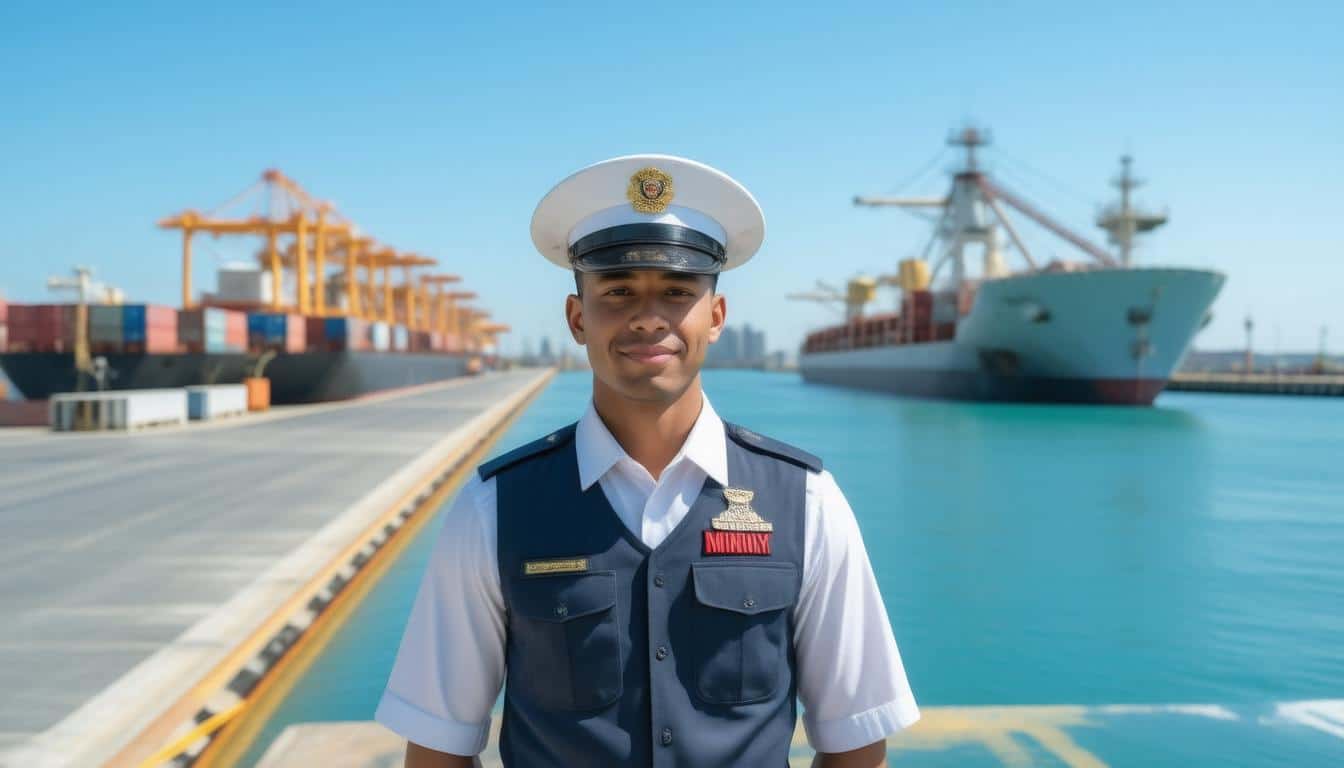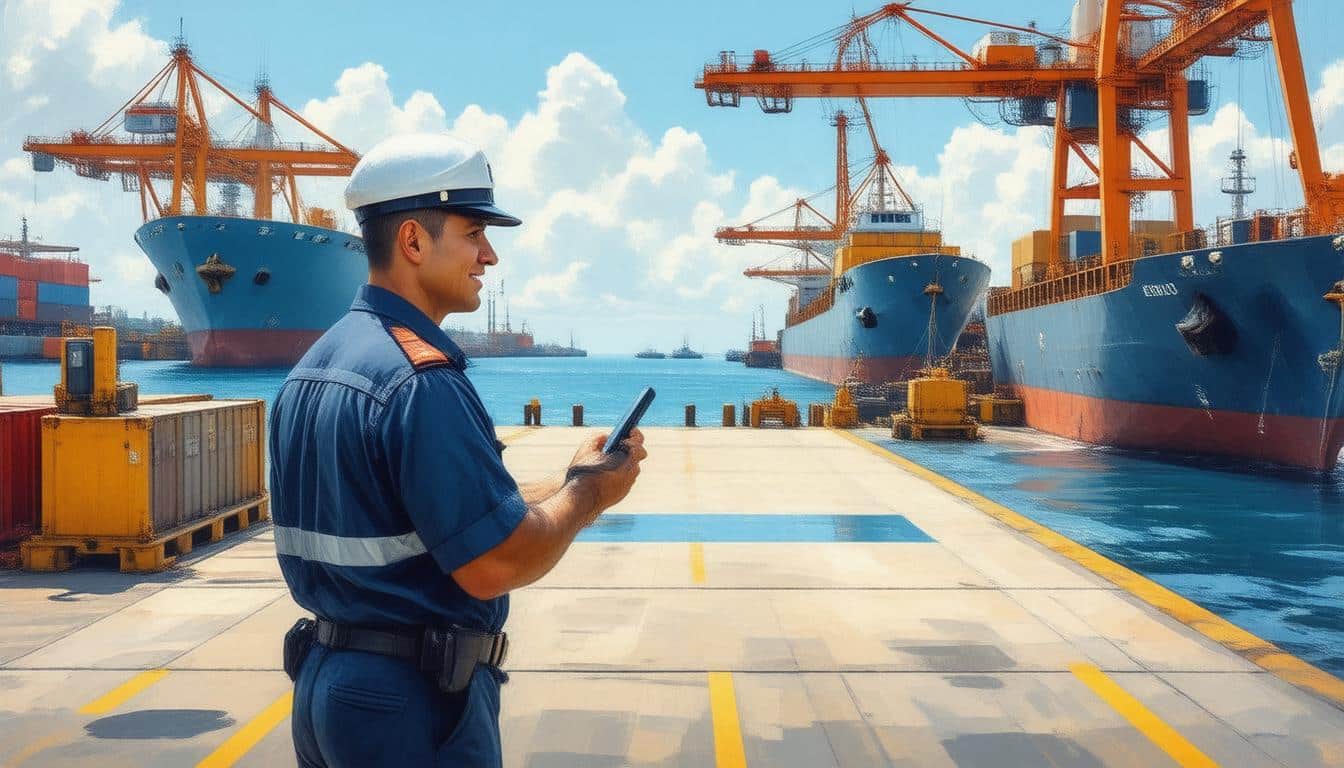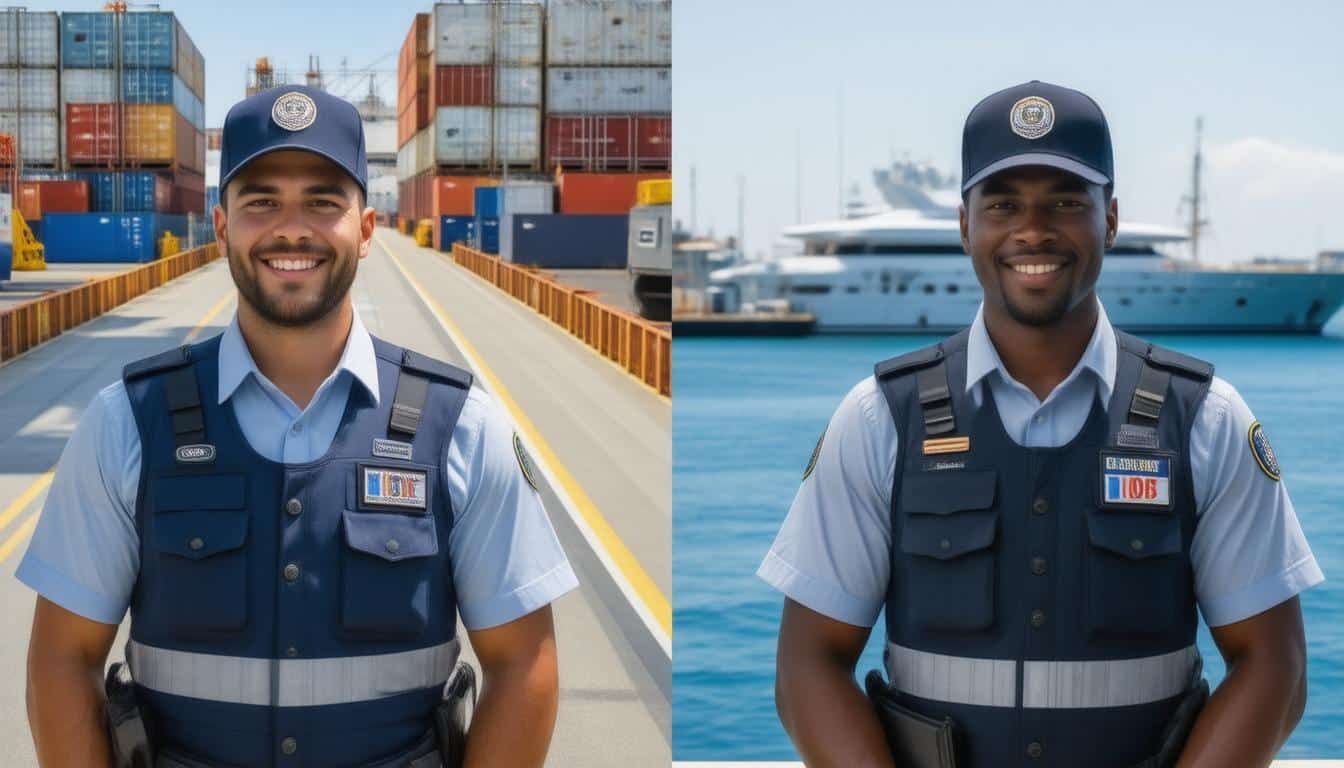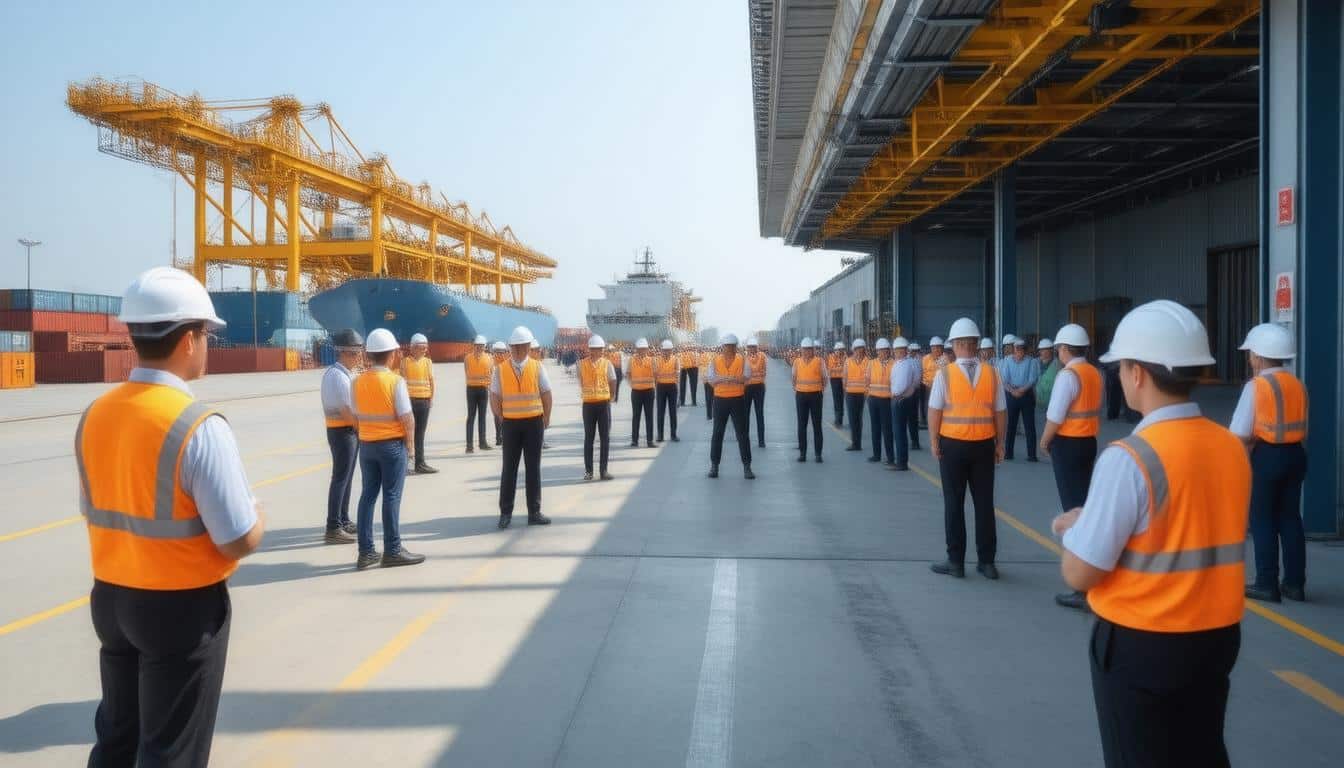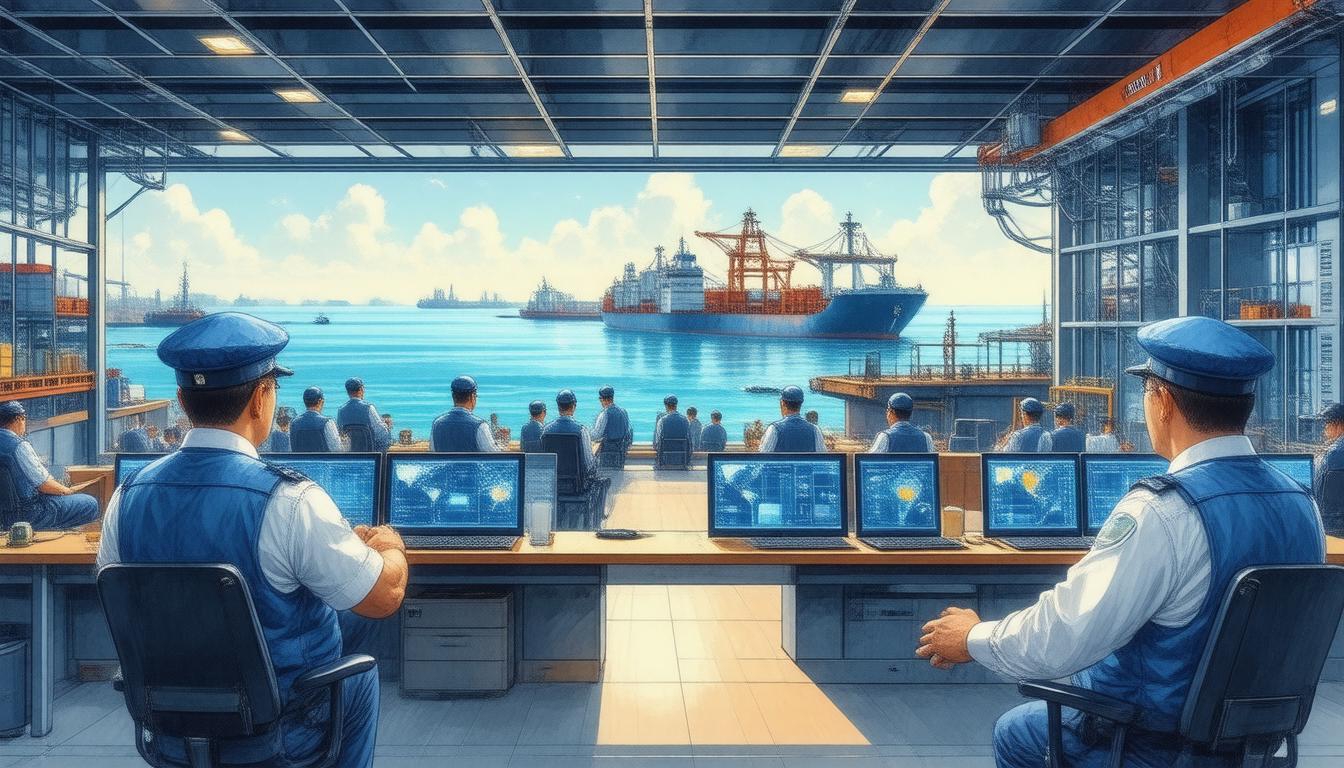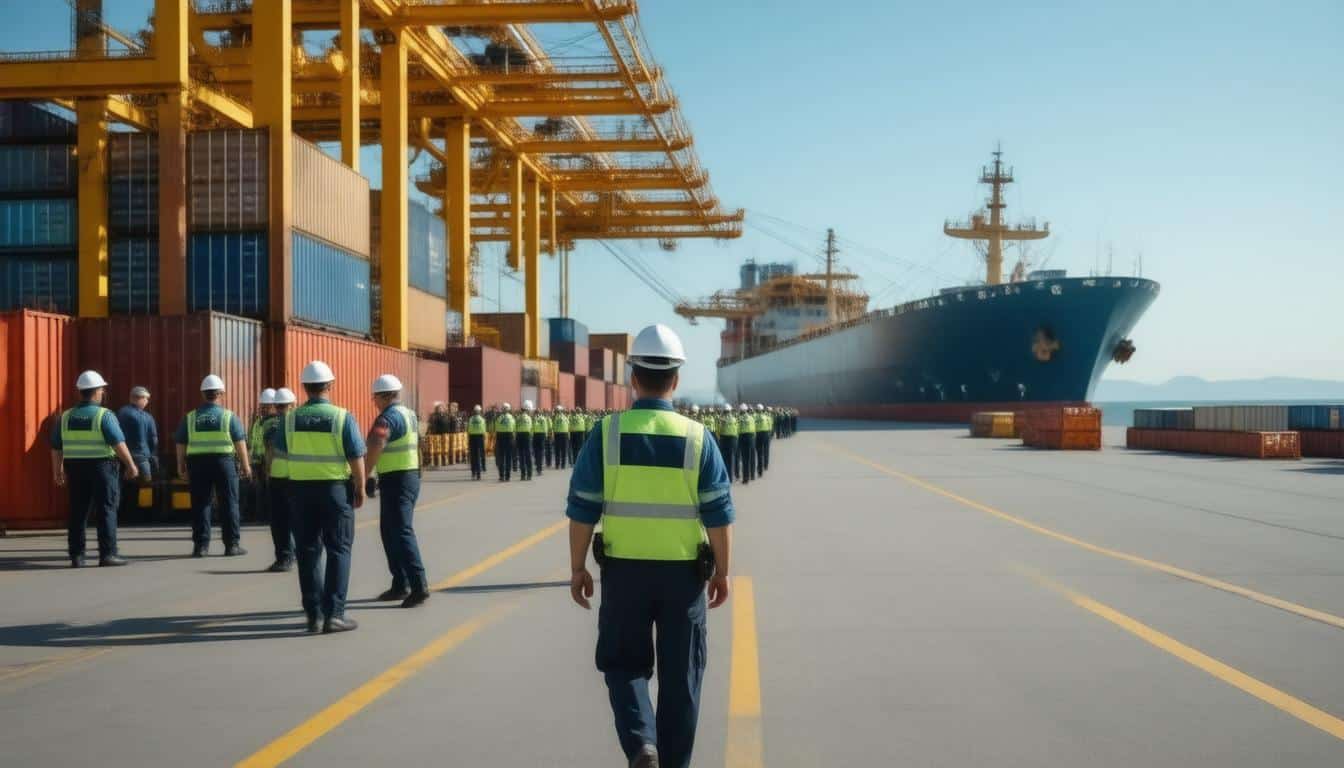In the ever-evolving landscape of maritime security, the International Ship and Port Facility Security (ISPS) Code plays a crucial role in safeguarding vessels and port facilities worldwide. Established by the International Maritime Organization (IMO), the ISPS Code outlines a series of measures designed to enhance the security of ships and ports in response to the growing threat of maritime terrorism and piracy. Understanding the intricacies of ISPS is essential for maritime professionals, facility operators, and shipping companies. In this article, we will explore what ISPS is, why it is important, the components needed for compliance, and the future challenges and developments that may shape its implementation in the maritime industry.
Learn More About Our Courses Here!
Key Takeaways
- ISPS stands for International Ship and Port Facility Security, focusing on enhancing maritime security.
- ISPS is crucial in preventing security threats to ships and port facilities worldwide.
- Key components of ISPS compliance include risk assessment, security plans, and regular audits.
- The implementation of ISPS has led to improved global maritime security protocols.
- Future challenges for ISPS include adapting to evolving threats and technological advancements.
What Are ISPS?
The International Ship and Port Facility Security (ISPS) Code is a pivotal regulatory framework established by the International Maritime Organization (IMO) to enhance maritime security. Introduced in the wake of the 9/11 terrorist attacks, the ISPS Code outlines specific measures for shipping companies and port facilities to protect against potential threats. It mandates the assessment of vulnerabilities, development of security plans, and implementation of necessary security measures to safeguard ships and port facilities. Compliance with ISPS is not just a legal obligation; it’s crucial for ensuring the safety of crews, cargo, and the environment in the increasingly complex landscape of global trade. Understanding ISPS is essential for anyone involved in maritime operations, as it plays a critical role in maintaining the integrity and security of maritime logistics.
The Importance of ISPS in Maritime Security
The International Ship and Port Facility Security (ISPS) Code plays a crucial role in enhancing maritime security globally. Implemented after the tragic events of September 11, 2001, the ISPS Code provides a framework for governments and maritime industries to secure ports and vessels against potential threats. This risk management strategy emphasizes the necessity of assessing vulnerabilities and implementing appropriate security measures at both maritime facilities and onboard ships. Adhering to ISPS standards not only protects maritime assets and personnel but also fosters international trade by ensuring safer passage for shipping routes. Furthermore, compliance with the ISPS can enhance a port’s reputation and attract more business, making it an essential component in today’s maritime operations.
Learn More About Our Courses Here!
Components of ISPS Compliance
Understanding the Components of ISPS Compliance is crucial for any organization involved in maritime operations. The International Ship and Port Facility Security (ISPS) Code was established to enhance the security of ships and port facilities, addressing the rising concerns of maritime security worldwide. The fundamental components of ISPS include a comprehensive security assessment, which identifies vulnerabilities and risks within shipping operations. Following the assessment, the development and implementation of a Ship Security Plan (SSP) and Port Facility Security Plan (PFSP) are essential, tailored specifically to the unique operations of each vessel and port. Regular security drills and trainings are also mandated, ensuring that all personnel are prepared to respond effectively to security threats. Additionally, the appointment of a designated security officer is a requirement, who oversees the adherence to ISPS regulations and serves as the point of contact for all security-related matters. Understanding these components not only ensures compliance with ISPS but also enhances the overall safety and security within the maritime industry.
Future Challenges and Developments in ISPS
The International Ship and Port Facility Security (ISPS) Code has been fundamental in enhancing maritime security since its implementation following the September 11 attacks. However, as the maritime landscape evolves, future challenges and developments in ISPS are crucial to address. One of the primary challenges is the growing threat of cyberattacks targeting shipping and port facilities. With increasing reliance on digital technologies for navigation and communication, ensuring robust cybersecurity measures within the ISPS framework will be imperative to protect maritime operations. Additionally, the rise of global trade and environmental concerns necessitates a more comprehensive approach to cargo security and sustainable practices. Future developments in ISPS may include the integration of advanced technologies, such as AI and machine learning for threat detection, alongside greater collaboration between international bodies to create a unified security standard. By addressing these challenges and embracing innovation, the maritime industry can strengthen its resilience against emerging threats while ensuring compliance with the ISPS Code.
About Virtual Maritime Academy
Virtual Maritime Academy is a leading provider of online maritime education and training, offering a wide range of courses designed to meet the needs of the global maritime industry. With a commitment to quality and innovation, Virtual Maritime Academy is dedicated to preparing seafarers and maritime professionals for success in their careers. Now a DNV Certified Maritime Training Provider, the academy upholds the highest standards of excellence in training and education.




